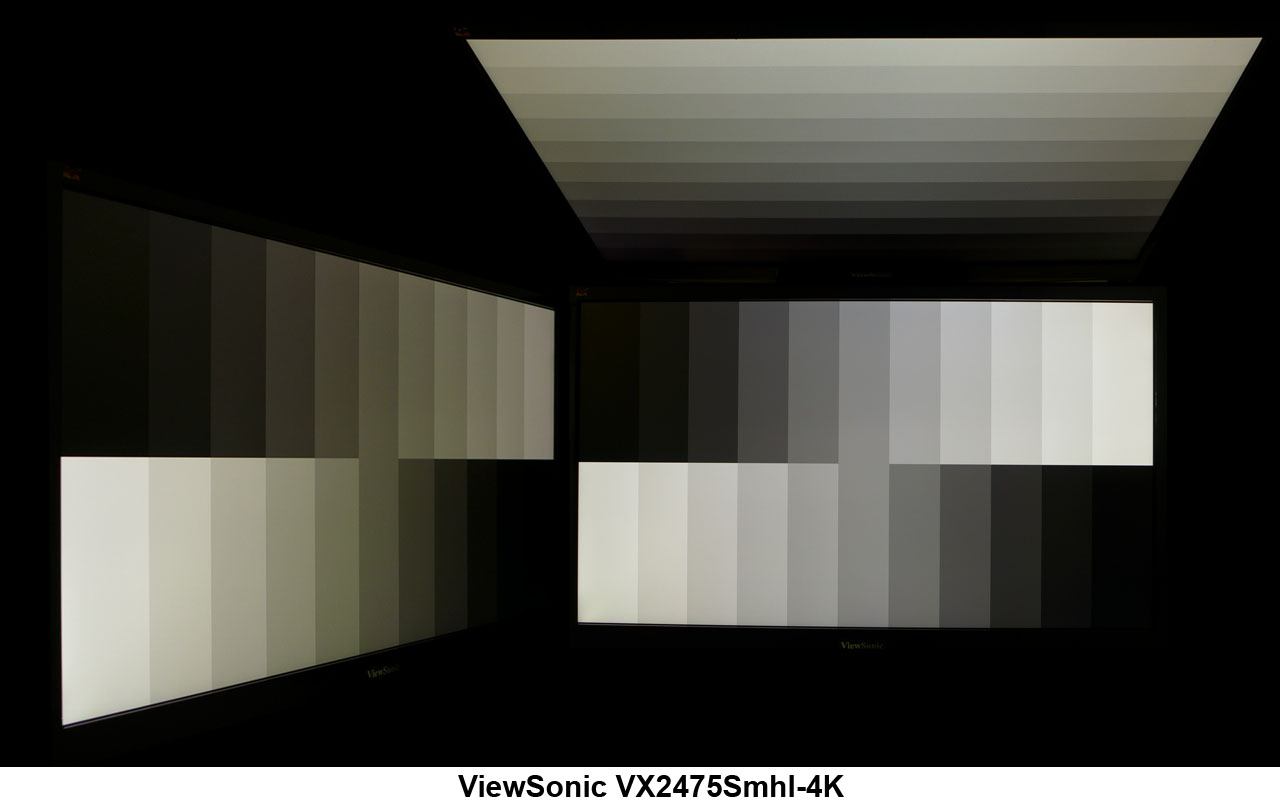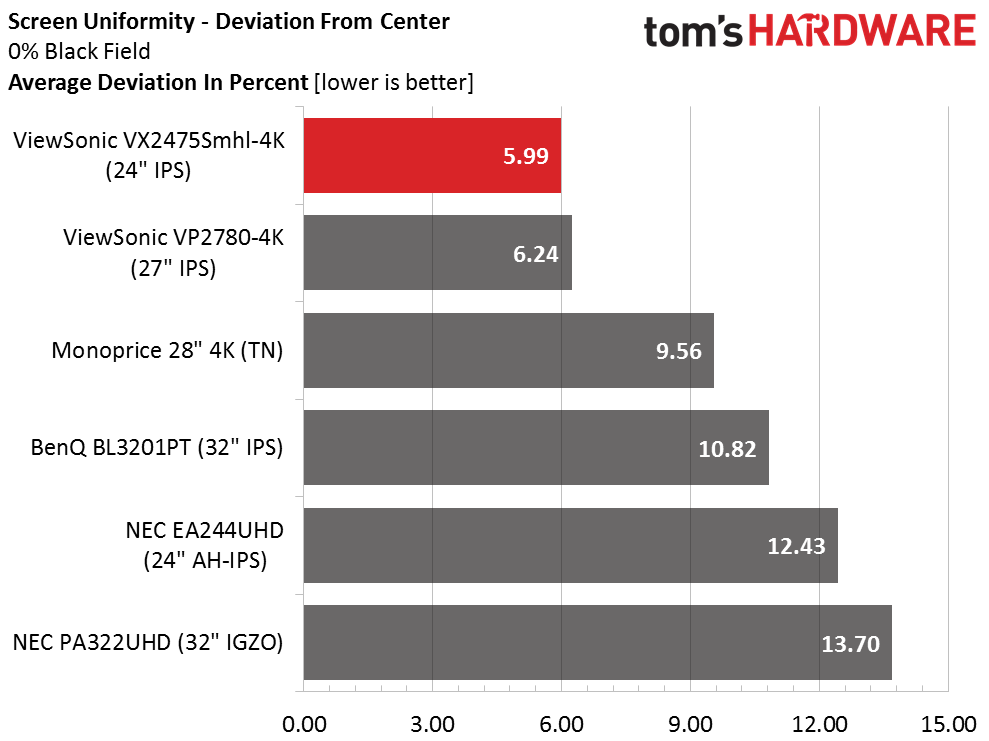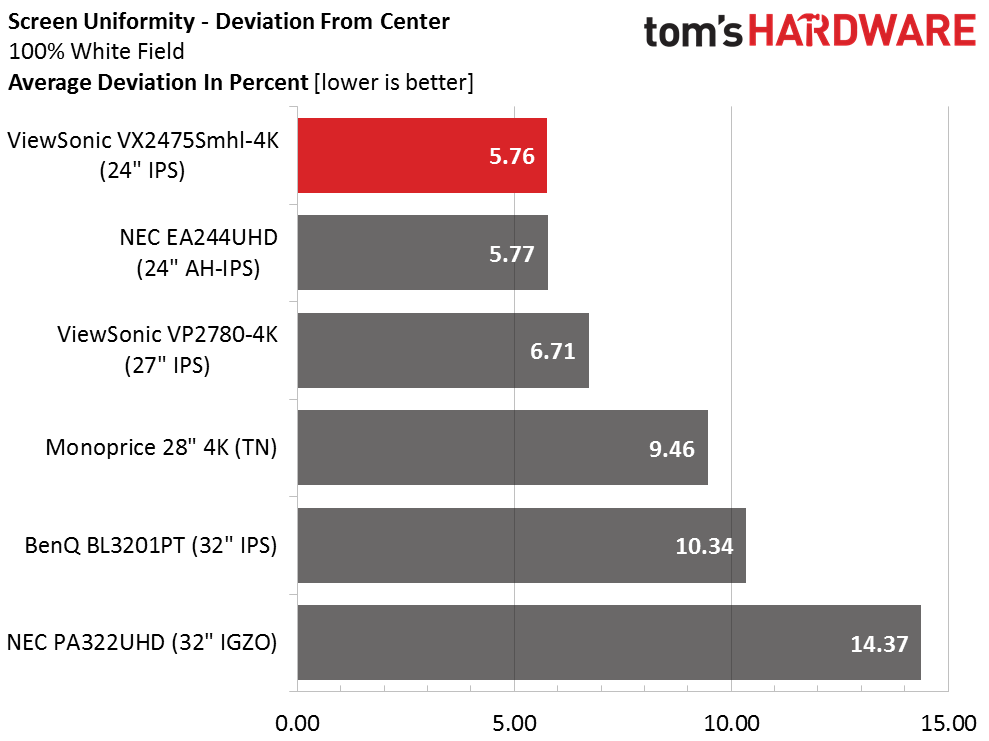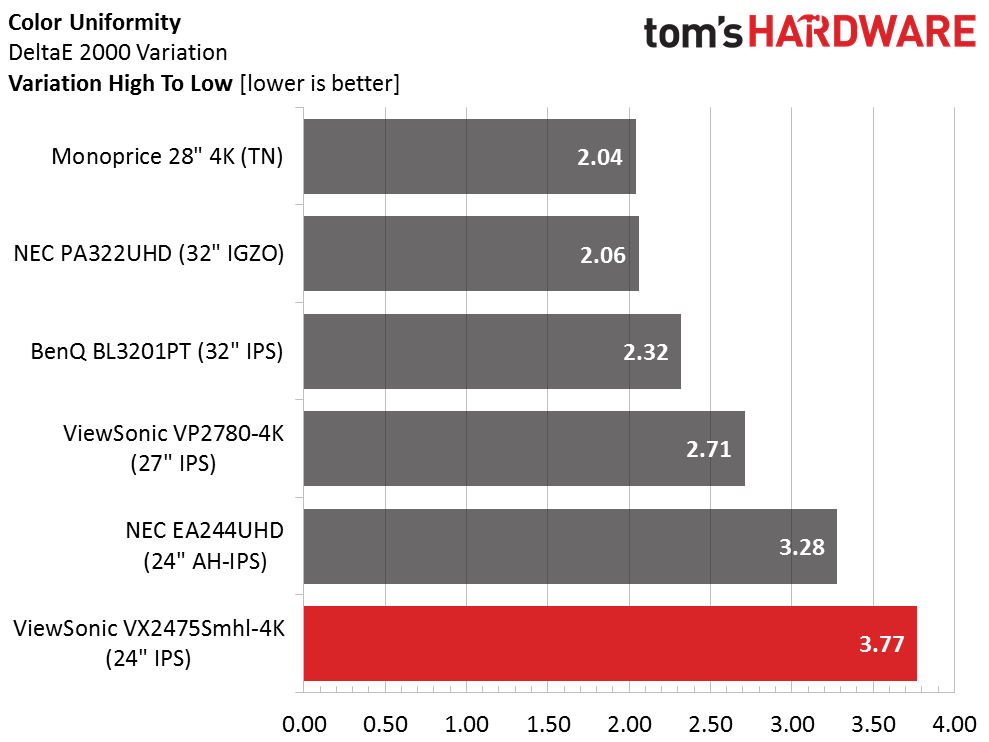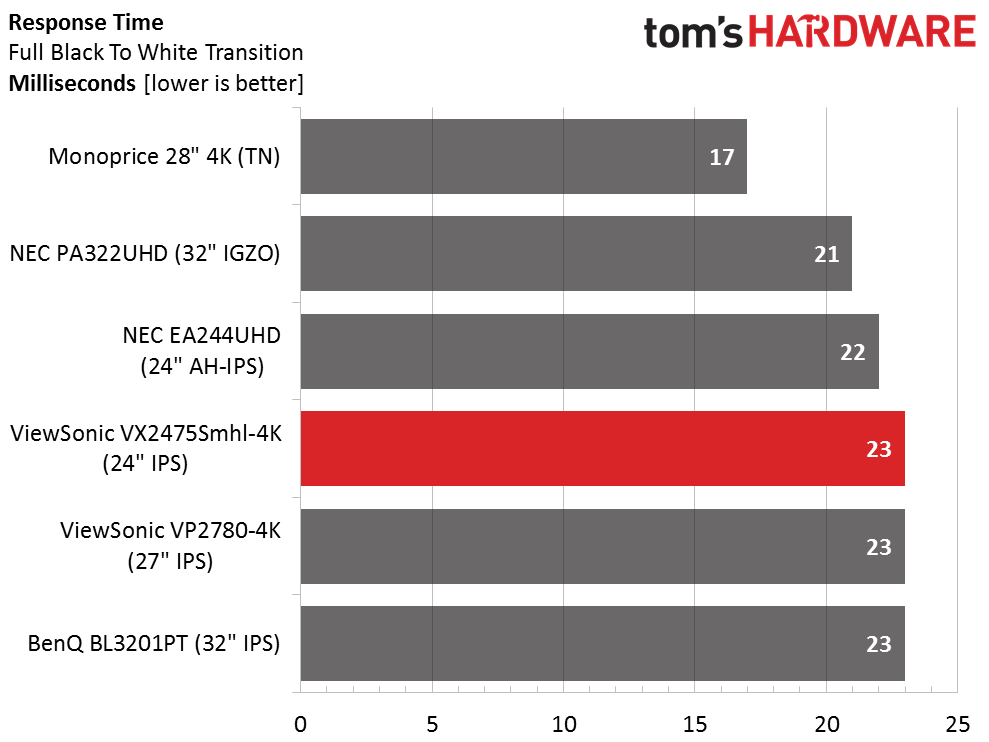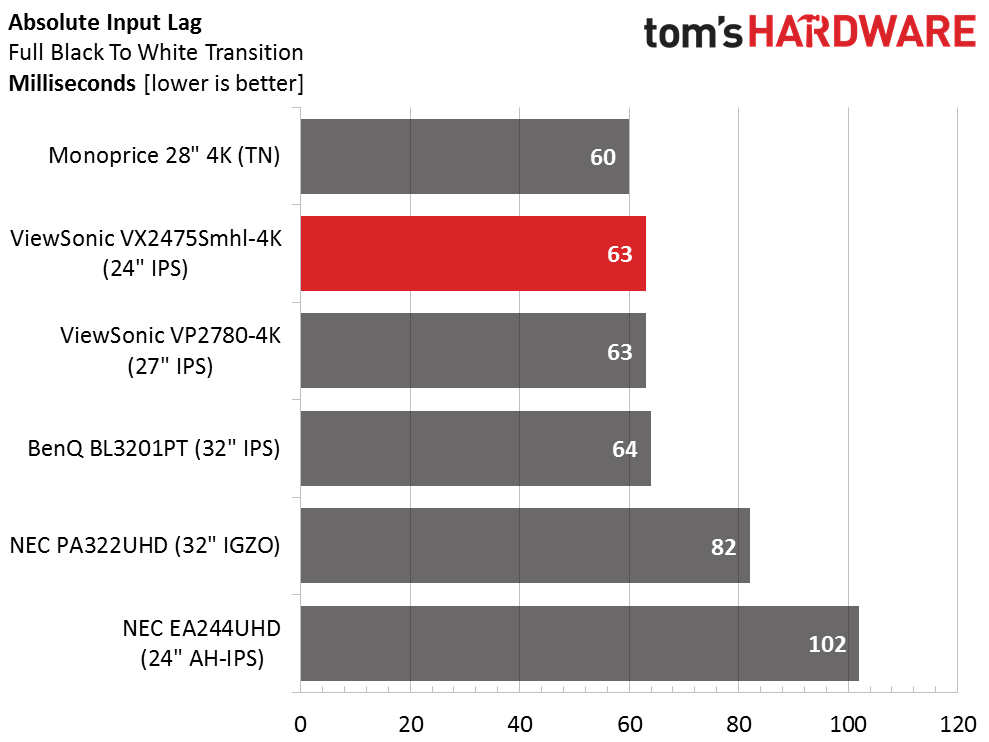ViewSonic VX2475Smhl-4K 24-Inch UHD Monitor Review
ViewSonic's new VX2475Smhl-4K is a 24-inch IPS panel that's currently one of the least expensive Ultra HD monitors available. Today we run it through our lab and hands-on tests.
Why you can trust Tom's Hardware
Viewing Angles, Uniformity, Response And Lag
To learn how we measure screen uniformity, please click here.
While some newer flavors of IPS (AHVA for instance) promise better off-axis image quality, the Samsung PLS panel in use here does just fine. You can see a green shift in both the horizontal and vertical planes but light falloff is only around 30 percent. It’s certainly better than any TN screen we’ve photographed.
Screen Uniformity: Luminance
Our sample boasts seriously good uniformity in both tests. Only four monitors out of the 70 or so in our database have returned a better black field result. And 5.99 percent is well below the point where you'd see any light bleed or hotspots.
Here's the white field measurement.
The white field measurement is equally impressive. There are no visible brightness variations anywhere on the screen.
Screen Uniformity: Color
The right side of our sample has the slightest green tint but you'd have to look closely to see it. It does exceed our standard of three Delta E though. We saw no problems in actual content.
Pixel Response And Input Lag
Please click here to read up on our pixel response and input lag testing procedures.
Get Tom's Hardware's best news and in-depth reviews, straight to your inbox.
The VX2475Smhl-4K's panel response is about the same as other 60Hz IPS monitors we've tested. It gets a little help from overdrive (set to Ultra Fast), which reduces motion blur slightly without creating visible ghosting.
Here are the lag results.
You can see that both ViewSonic screens provide low input lag. They won't compete with a 144Hz display, but for gaming we think framerates will be a bigger challenge than the monitor's actual response to control inputs. Obviously you'll need a stout graphics card to hit 60fps in most first-person titles.
Current page: Viewing Angles, Uniformity, Response And Lag
Prev Page Color Gamut And Performance Next Page Conclusion
Christian Eberle is a Contributing Editor for Tom's Hardware US. He's a veteran reviewer of A/V equipment, specializing in monitors. Christian began his obsession with tech when he built his first PC in 1991, a 286 running DOS 3.0 at a blazing 12MHz. In 2006, he undertook training from the Imaging Science Foundation in video calibration and testing and thus started a passion for precise imaging that persists to this day. He is also a professional musician with a degree from the New England Conservatory as a classical bassoonist which he used to good effect as a performer with the West Point Army Band from 1987 to 2013. He enjoys watching movies and listening to high-end audio in his custom-built home theater and can be seen riding trails near his home on a race-ready ICE VTX recumbent trike. Christian enjoys the endless summer in Florida where he lives with his wife and Chihuahua and plays with orchestras around the state.
-
JeanLuc The pixel density of a 4K screen is about the same as a high end 1080p smart phone, the picture quality of this must be stunning.Reply -
xenol ReplyThe pixel density of a 4K screen is about the same as a high end 1080p smart phone, the picture quality of this must be stunning.
The monitor is half that, compared against a 6" phone. But at the viewing distances of a monitor, it may as well be effectively greater. -
DisplayJunkie "nicely styled with a gloss-black bezel"Reply
Are you kidding me? Nicely styled? NO. Glossy black plastics are COMPLETE CRAP. They REFLECT the damn displayed image! This is ESPECIALLY horrible when it's used on bezels, it is EXTREMELY annoying.
And glossy black plastics look terribly cheap.
Not to mention black bezels reduces the perceived contrast ratio. Matte grays are the correct choice.
Why do monitor manufacturers keep doing this?
"Just" because of that, this monitor is immediately disqualified from my consideration.
-
xenol Reply24" UHD monitor for gaming? Nope. Just nope. It's too small for me, I'm getting old.
You can think of it this way: you no longer have to deal with anti-aliasing of any kind!
But then again 4K with no AA may as well be the same as 1080p with 4xMSAA (only not since MSAA is much cheaper than 4K still) -
nitrium I often wonder what the scalers are like in these things, i.e. if you run a resolution lower than native - something you may potentially be forced to do to get a playable framerate in gaming for example. Does it look absolute rubbish? How does 1080p look on these screens compared to 1080p on a screen with that as native resolution? Does it generally look better, worse or roughly the same? Are all scalers created equal? Would be very interested to read about this in future articles.Reply -
picture_perfect Here we go again.The best graphics card today will average 40 fps at this resolution. Check any current game. That means an awful gaming experience with judder, blur and lag. Scaling resolution down degrades picture / adds lag. So for gaming I will say NO.Reply
